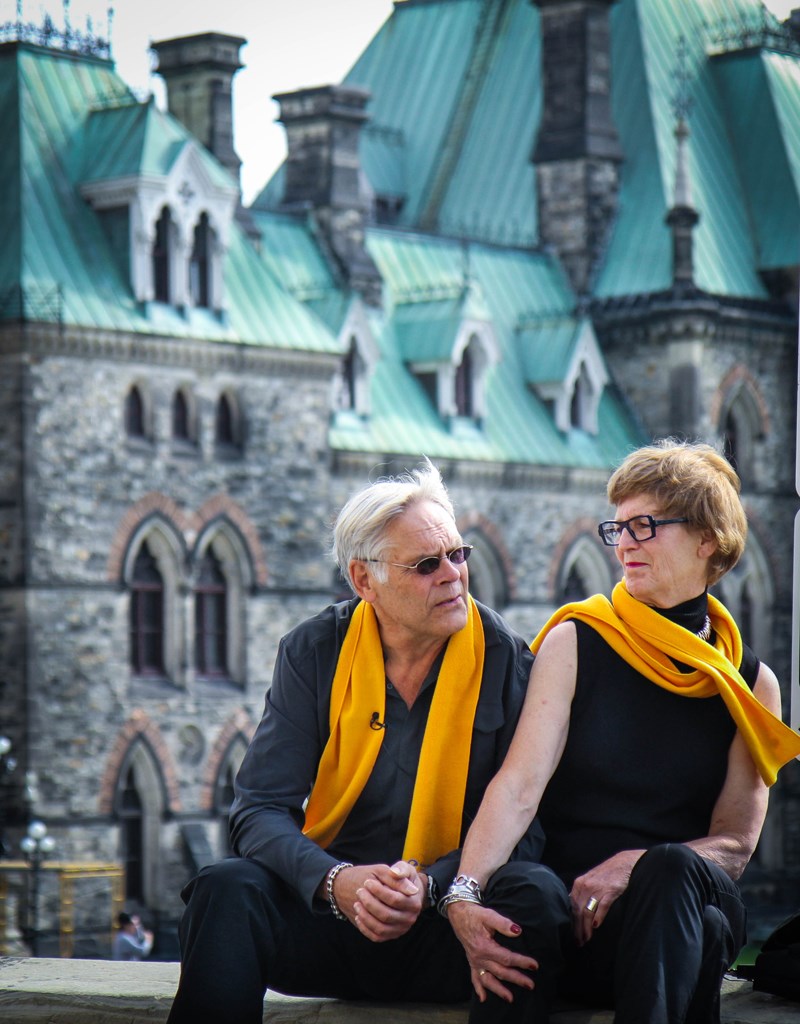When we think about death, most of us probably imagine a peaceful passing or even a blissful afterlife. For many people, however, the process of dying is anything but untroubled and dignified.
That’s why the BC Civil Liberties Association (BCCLA) went to the Supreme Court of Canada on Oct. 15 to argue in the case of Carter v. Canada that the federal laws that criminalize doctors for helping competent, seriously ill individuals who wish to hasten their own death are unconstitutional. The BCCLA presented the case that allowing physicians to assist terminally ill patients to end their lives is a fundamental human right and an integral part of a compassionate society.
Two of the plaintiffs were Gloria Taylor and Kathleen (“Kay”) Carter. Both were terminally ill with degenerative diseases and facing pain, suffering and loss of even the smallest detail of personal autonomy.
Their case was supported by a number of people who told their own stories, including a woman who considered suicide by asphyxiation, drug overdose or freezing herself to death rather than suffer the end stage agonies of cancer; a man with ALS who had been told he was “on his own” when he tried to discuss the options he would have once his disease progressed; a man with Huntington’s disease whose mother with the same inherited condition killed herself by starvation to avoid further suffering; and a woman whose husband begged her to shoot him to relieve him from the anguish he was in due to ALS.
Suicide has been legal in Canada since 1972, but many people incapacitated by severe illness don’t have the strength or coordination to act alone. It makes sense for them to be able to enlist the services of a doctor to ease their suffering.
It is an indictable offence punishable by up to 14 years in prison for anyone, including a doctor, to aid or abet a person to commit suicide.
This is not the first time that this issue has reached Canada’s highest court. In 1993 Sue Rodriguez, a terminally ill woman, challenged the prohibition of assisted suicide as contrary to the Charter of Rights and Freedoms. In a five to four decision, the court upheld the criminal code provision, but the dissenting justices raised significant questions about whether the Charter rights guaranteeing security and equality and prohibiting cruel and unusual treatment were violated.
In 2012, two decades after the Rodriguez case, B.C. Supreme Court agreed with Taylor and Carter that the law against assisted suicide infringed on equality, security and liberty rights. The rejoicing was short-lived, however, as that historic ruling was set aside by the BC Court of Appeal. The BCCLA appealed to the Supreme Court of Canada, which agreed to again consider the question of doctor-assisted suicide.
Much has changed since 1993. Today, assisted suicide is legal in Switzerland, Germany, Belgium, Colombia, Japan and Albania, and in the U.S. states of Washington, Oregon, Vermont, New Mexico and Montana.
If the BCCLA case is successful, the right to physician-assisted suicide will be a personal choice available only in tightly regulated, exceptional circumstances such as those faced by Taylor and Carter. Neither will see the results of their work. Taylor died suddenly from an infection in 2012 and did not need to request medical assistance to end her life. Carter travelled to Switzerland to receive assistance in dying in 2010, because physician-assisted suicide was not available in Canada. She had to keep her plans secret and could not even risk saying goodbye to many people she loved.



